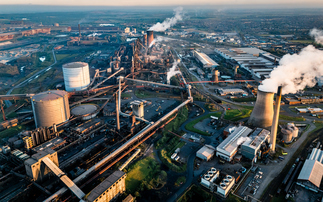Fast-food giant pledges to phase out deforestation in US operations' supply chains by 2016
The company behind Dunkin' Donuts and Baskin-Robbins ice cream has pledged to stop frying its doughnuts in unsustainable palm oil, which contributes to deforestation and destroys habitats of endangered species such as tigers and orangutans.
Dunkin Brands Group yesterday unveiled a commitment to use 100 per cent sustainable palm oil at its United States stores. The copany said that by the end of 2015 it will be able to trace all of the palm oil it buys back to the mill and by the following year will be able to trace it back to individual plantations.
During the next six months, the company will publish a plan for moving towards 100 per cent sustainable palm oil, including a map of its international suppliers as part of a move towards greater transparency.
"Sourcing even limited amounts of palm oil irresponsibly can contribute to deforestation, loss of natural habitats and other environmental and human rights concerns," said Christine Riley Miller, senior director of corporate social responsibility for Dunkin' Brands, in a statement. "Therefore, Dunkin' Brands has created clear guidelines for our suppliers, and to ensure independent verification that our principles are being met, so that by 2016 we can meet our targets of sourcing only responsibly-produced palm oil."
She added that the commitment was part of a wider drive by the company to find "sustainable business solutions that meet the needs of our guests and our franchisees, and that benefit our communities and the planet".
The move received a mixed response from environmental campaigners. Forest Heroes, welcomed the decision, and urged other doughnut companies such as Krispy Kreme to follow suit.
However, the Union of Concerned Scientists (UCS) said the commitment did not go far enough as it would only apply to Dunkin's US restaurants. "America might run on Dunkin', but the company needs to address the 59 other countries in which it operates, too," said Calen May Tobin of UCS. " Dunkin' is clearly feeling the heat from American consumers, but their response is not quite what their consumers are demanding. The fast food sector is woefully behind other industries when it comes to sourcing sustainable palm oil. Dunkin' is taking this issue seriously and more fast food companies should follow in its footsteps. At the end of the day, though, this is literally a half-measure."









